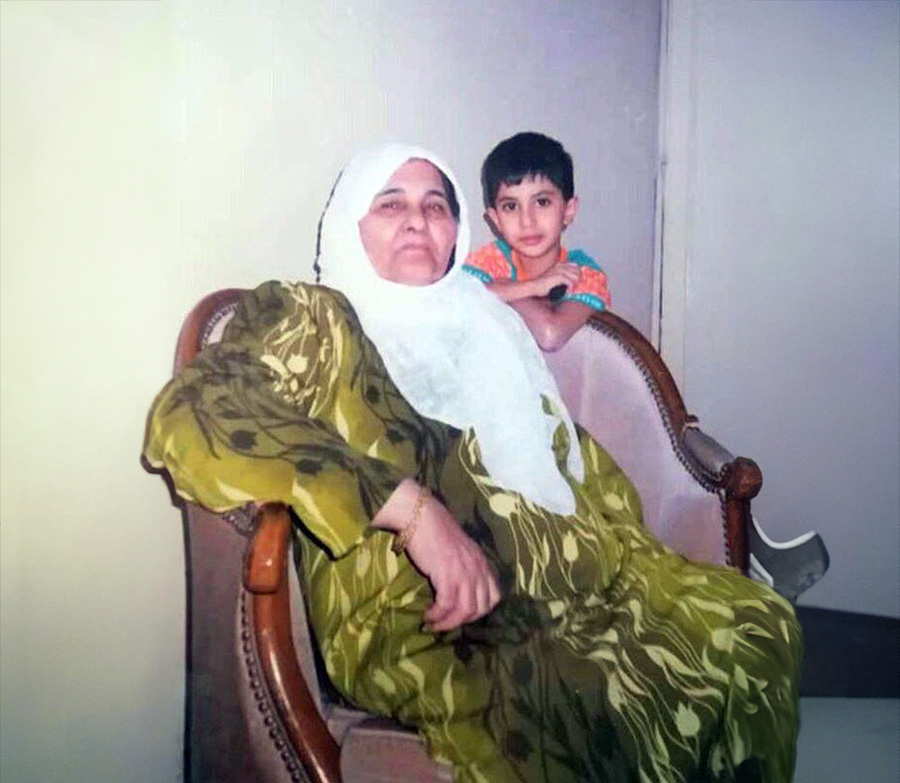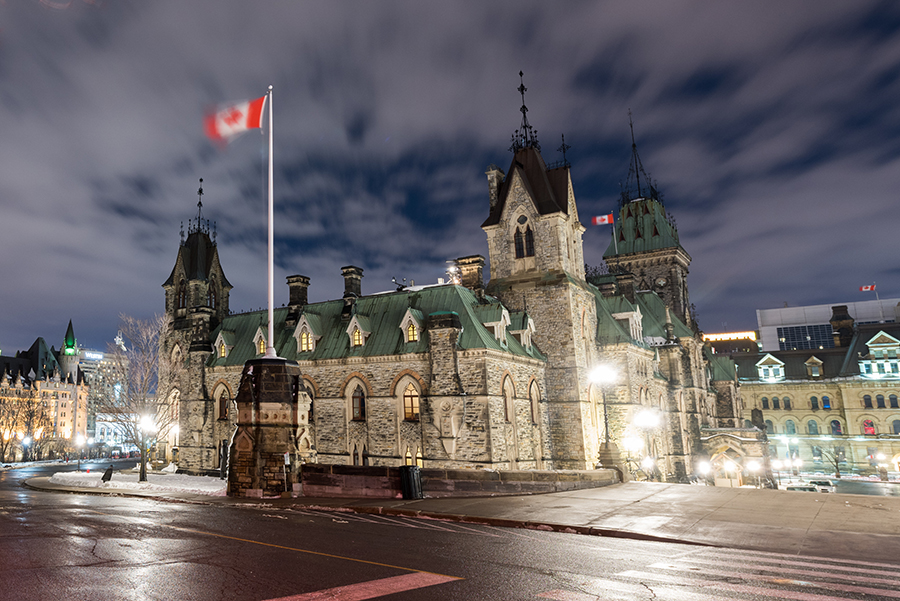Bound by grief: The agony of mourning in exile when home is a world away

Sheena Shirani,
Local Journalism Initiative Reporter
In the intricate tapestry of immigrant experiences, the sorrow of losing loved ones without the chance for final goodbyes resonates with a profound ache. Whether the news arrives via a phone call or a distant video connection, the anguish is tangible, echoing across continents.
Dr. Maurice Eisenbruch, a professor of psychiatry and medical anthropologist, is recognized for introducing the term “cultural bereavement”, which captures the essence of the struggle faced by immigrants grappling with grief amidst the complexities of cultural displacement.
For immigrants and refugees facing the loss of loved ones with no prospect of seeing them and having to bid farewells from afar, this agony is intensified. They navigate not only the sense of cultural bereavement stemming from displacement to foreign lands but also the sorrow of a loved one’s demise without the chance to bid a final farewell.
Samira Hoghoughi, an Ottawa-based mental health professional and social activist, attests to this pain and underscores the additional challenges immigrants encounter in mourning from a distance, deepening feelings of isolation and exacerbating emotional turmoil.
“In situations where individuals are unable to attend the funeral of their loved ones in person, their grieving process will face some challenges and delays,” Hoghoughi noted. “As migrants, they are already caught up in a series of multiple losses and bereavements related to their new environment, cultural framework, family ties, socio-professional status, etc. The loss of a loved one must be included in a migratory process that is full of manifold challenges and new experiences, requiring a great deal of energy,” she added.
These sentiments find resonance in personal stories like that of New Canadian Media reporter Sheena Shirani. In her own narrative, Shirani recounts the devastating loss of her grandmother while living in exile. The news of her grandmother’s passing, delivered through a strained phone call, plunged Shirani into a whirlwind of grief and guilt. With no chance for a proper goodbye, Shirani grappled with the weight of unresolved farewells, finding solace in digital connections with her family scattered across the globe.
Similarly, the narratives of Abdulrahman Matar, a Syrian author and poet, who endured the abrupt loss of loved ones while imprisoned and in exile, and Nazer Ayoubi, an Afghan journalist grappling with the heartache of losing his mother while stranded, underscore the profound challenges encountered by exiles in grief.
Shirani: Finding Comfort in Digital Connections
Losing my grandmother, my only living grandparent, while in exile, was a devastating blow. It was a cold, lonely night after a hectic night shift when my phone incessantly rang. “Sisbug,” the screen read. It was my youngest sister. “What could she want at this ungodly hour?” I thought.
Years in exile alter your relationship with your phone, swinging between craving the sound of its ring in anticipation of comfort and good news to dreading it for unexpected, daunting news. My sister’s persistent calls that morning hinted at trouble. “Maman…” she faltered, invoking the Farsi term for mother. “Mother?” I interjected, my mind spiraling through a multitude of dire possibilities. “Mamannazi,” she blurted out. Mamannazi, a cherished term for our grandmother. “Mamannazi’s gone. She’s passed,” she uttered, amidst her nonstop sobbing.
Relief washed over me, mingled with guilt. How could I feel relief at the expense of my grandmother’s passing? But I was relieved our mother was okay.
Memories of Mamannazi flooded my mind — her smiling face, framed by the glow of a phone screen, as she greeted me in her hurried yet affectionate manner.
But now she was gone. I retraced my memories in search of moments spent in her presence, but my departure from the country had been sudden, leaving no opportunity for goodbyes. There was no one vivid memory, only scattered pieces, that eluded me.
My sister cried frantically. Being the youngest in our family, she was more attached. She had spent a good three months alone with grandma and could recall those times with much more clarity. Meanwhile, I remained stoic. Life had taught me that loss was inevitable — it’s okay, it’s life. But even this cold wisdom failed to ease my broken heart. I searched my memories for signs of her struggling, but apart from the expected frailty of old age, I found nothing. She had appeared quite well. How could this be?
The world spun around my head. But a desperate pair of eyes were fixed on me, my little sister in Germany, and I was the only one who could offer her solace. “Sheena, grandma’s gone,” her voice trembled as tears streamed down her cheeks.
What does one do in moments like these, separated by thousands of miles from loved ones? With no physical comfort to offer, how does one console? I longed to hold her close, to share in her grief, yet we were distant, finding solace in each other’s virtual presence on the phone.
Most of that day was spent tethered to the phone. I called her. She called me back, and together we reached out to our middle sister, who was already making arrangements to return home for the funeral. How bittersweet. While we each mourned in isolation, at least one of us would be able to bid our farewells in person.
Was it frustration or envy that welled up inside me? I pushed aside such feelings. We needed to stand together for Mum, who now faced the loss of her mother, estranged from us in our distant lands. How tragic. What were we doing, scattered across the globe? I tried to maintain a façade of strength, but inside, I felt myself unraveling — my last living grandparent, a link to my childhood, was now gone.
Having comforted my sister to the best of my ability, I reached for the phone, dialing my mother’s number repeatedly. Connecting with loved ones in Iran is never easy. Phone lines falter, social media is restricted, and VPNs often fail.
After countless attempts, I finally heard her voice, fragile and distant. “Mum, are you okay?” I asked. “My mother has left us,” her words were heavy with sorrow before the call abruptly ended.
Gazing at my reflection in the mirror, I was the closest thing to home. With tears in my eyes, I said my goodbyes to my grandmother, whispering words of love and bidding her farewell.
For the next few days, my sister and I leaned on each other for support, witnessing the events unfold from afar. There were no embraces, no goodbyes, only the cold reality of distance and loss.
In the absence of physical presence, our only connection was through the phone — a tenuous lifeline linking us to our loved ones’ world.
My grief propelled me to seek connection with others like me, individuals similarly separated by geographical barriers, political mandates, and force. Those compelled to leave their homelands not by choice, but by dire circumstances.
Among them were Abdulrahman Matar and Nazer Ayoubi. Together, we found solace in our shared experiences of loss and yearning.
Matar: Experiencing Loss from a Syrian Prison and Beyond
Matar experienced his first significant family loss in 2003 while still in Syria. His brother, a journalist, aged 47, tragically perished in a car accident involving a military vehicle. At the time, Matar was a political prisoner, unaware of the circumstances surrounding his brother’s demise until two years later.
During family visits to Matar in prison, inquiries about the brother’s whereabouts were met with evasive responses. Initially, the family claimed he had traveled to Cairo to pursue a doctorate. Subsequently, they informed Matar that he had been detained due to a dispute with an army general. However, Matar suspected that his brother, a clandestine critic of the regime, had been targeted for his efforts to expose corruption through journalism
Moved by a desire to advocate for his brother’s release and unaware of his death, Matar urged his family to seek assistance from international organizations. He frequently asked his mother about his well-being during phone conversations, only to be met with her tearful responses. “One time she said that he was absent, then she added: ‘You are absent, and he is absent.’ This sentence is still engraved in my heart. I felt like there was something going on,” Matar reflected.
During another call to his family from prison, he caught the faint, distant voice of one of the family’s grandchildren, murmuring about his brother: “May he rest in peace.”
“It was very painful and sad,” Matar said. “I understood what my mother’s words meant: I am in prison, and he is in the grave.”
In 2009, while Matar was still in prison, he received news of his father’s passing. His father, aged 105, had been ill for two years.
Released in 2011 after nine years of imprisonment, Matar’s respite was short-lived. In 2012, he faced arrest once again, eventually leading to his forced departure from Syria to Turkey. There, he bid a sorrowful farewell to his family, including his mother and brothers. The challenges of exile were compounded by the loss of his older brother, who succumbed to a kidney disease aggravated by the looting of medical equipment by the Islamic State (ISIS) in his hometown, Raqqa.
In 2015, Matar sought refuge in Canada. However, tragedy continued to haunt him as he received news of his mother’s passing just months after his arrival. She passed away alone, lamenting the absence of her sons who were either buried or exiled. “She said to her granddaughter: ‘Just say hello to my children,’” Matar recounted. He described the anguish of not being able to bid a proper farewell to his loved ones, exacerbated by the desecration of their graves by ISIS.
Reflecting on the emotional toll of grief and exile, Matar expressed his indescribable pain mixed with anger and sadness. “Until today, as a poet, I have not written any poem about any of my family members. Only my brother died first: I wrote a chapter about him in my novel, A Wild Mirage. And a poem. That was when I was in prison. What I know today is that I am a sad person… and I fear that I will lose more of my family members whom I have not met since 2012,” Matar said.
As Matar navigates life in exile, he finds solace in reading, nature, and maintaining constant communication with his family. Despite the hardships, he maintains his hope of reuniting with his loved ones one day.
Ayoubi: Mourning Across Distant Lands
Meanwhile, Nazer Ayoubi’s world shattered in the early silent hours of Nov. 22, 2023, with a nightmare that jolted him awake. As he reached for his phone, he was met with a flood of missed calls, each one a harbinger of dread. It was his brothers and relatives desperately trying to reach him. He dialed back the last number, only to be met with the devastating news: his mother had departed from this world.
“The dark night grew even darker for me, and until morning, I twisted in pain, carrying all the sorrows alone on my shoulders,” Ayoubi revealed as he attempted to shield his wife and child from further suffering, given that they were already stranded in a camp in Albania.
Ayoubi had been awaiting the completion of his paperwork to travel to Canada at the time. Surrounded by strangers in a foreign land, he found himself utterly alone in his sorrow. It was in those very quiet hours before dawn that his wife discovered him curled up in the kitchen, contorted with agony.
Thousands of kilometers separated Ayoubi from his mother. “I felt like a wounded bird seeking a place to heal, but there was no cure. Until that afternoon, I made my way to the shore and found a spot where I began to scream. I screamed so loudly that neither life remained within me nor any ear to hear me amidst the vastness of the sea.” Ayoubi described his desperation: “During the days, tears would unconsciously stream from my eyes, and at nights, I would sometimes find brief moments of sleep by taking sleeping pills, yet there was no remedy for my pain.”
In times of loss, families gather to offer comfort and support, but for Ayoubi, there was no such solace. “When you are alone in a country thousands of kilometers away from your family, there is nothing to alleviate the pain except carrying the heaviest burden on your own. There is no other way,” Nazer said.
According to Statistics Canada, in 2021, Canada had over 8.3 million current or former landed immigrants or permanent residents, comprising nearly 23 per cent of the population. Additionally, during the same period, 218,430 newly admitted refugees gained permanent residency status and remained in Canada.
Immigrants encounter a myriad of challenges, including the daunting prospect of leaving behind family members and everything familiar. However, enduring the loss of a loved one, especially without the chance to say goodbye, ranks among the most profoundly devastating experiences.
Understanding and coping with grief from afar
In 1969, Elisabeth Kübler-Ross outlined five common stages of grief, offering a framework for individuals to navigate through loss. These stages begin with denial, progressing through anger, bargaining, and depression, and ultimately reaching acceptance.
Hoghoughi shed light on the denial stage of grief, stating, “Denial is the stage that can initially help you survive the loss. You might think life makes no sense, has no meaning, and is too overwhelming. You start to deny the news and, in effect, go numb. You are in a state of shock because life hangs instantly. Brain doesn’t want to accept this sudden change. In the denial stage, you are not living in ‘actual reality,’ rather, you are living in a ‘preferable’ reality.”
Hoghoughi highlighted the challenges immigrants encountered due to the impossibility of practicing significant rituals and navigating multiple losses associated with their new environment.
“Cultural and social factors significantly influence the psychological experience of grief in these situations,” she observed. “Key cultural factors include religious beliefs concerning the afterlife and the soul’s nature, family dynamics, gender roles for mourners, norms governing emotional expression during bereavement, traditional mourning customs to honor the deceased, beliefs regarding the care of the deceased’s body, and established practices concerning funerals, burials, cremations, and memorial services. It’s crucial to grasp the diverse cultural mourning rituals and beliefs about death,” Hoghoughi emphasized.
In coping with grief in unconventional circumstances, Hoghoughi recommended accepting one’s emotions and not rushing the grieving process. She stressed, “It’s important to understand that experiencing grief is a healthy part of the healing process. Accepting your emotions is the key.”
Hoghoughi also underscored the value of seeking support from professionals or those familiar with one’s culture. “Just being present and listening to someone during their time of need can bring much healing and release,” she said.
“It’s crucial to seek professional help if the grief process persists beyond six months,” advised Hoghoughi. She highlighted the importance of having a support network, especially when far from one’s homeland and customary rituals.
“Although sometimes when you are experiencing a loss, you prefer not to have any relationship, but having safe people around you will always help, especially when you are far from your homeland and all the rituals you were supposed to join,” Hoghoughi said.
Sheena Shirani,
Local Journalism Initiative Reporter
New Canadian Media






